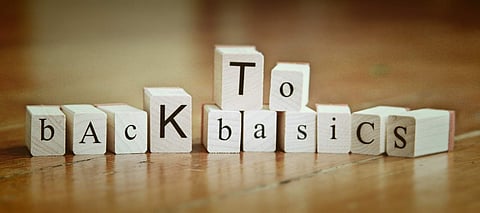

Teachers explain concepts to their students in different ways. Some great teachers tell engaging stories and anecdotes and some use memorable jokes and humour to draw the attention of their students. Here is a professor who explained marketing concepts to his students in an interesting manner:
“You see a beautiful girl in a party, you smile at her and tell her, “I am a rich guy you are looking for. Marry me.” That’s direct marketing.”
“You attend a party and your close friend goes to a good-looking girl. Pointing at you he tells her, “Look at the guy at the corner table. He is a rich guy. He is definitely a suitable partner for you. Marry him.” That’s advertising.”
“A gorgeous girl walks to you, flashes a dazzling smile at you as if you are familiar to each other and says, “Hi, can you marry me?” That’s brand recognition.”
“You see a very attractive girl at a party and tell her, “I am a very rich man. Why don’t you marry me?” She slaps you. That’s customer feedback.”
“You see a nice-looking lady at a party and tell her, “I am a rich man. Marry me.” She introduces you to her husband. That’s the demand and supply gap.”
“You see a gorgeous girl, flash her an engaging smile and before you utter these words “Hi….I am rich and so marry me” your wife arrives. That’s the restriction from entering a new market.”
“Interesting, isn’t it?” “Yes.” In the sentences above you find the words of speakers presented indirect speech. The exact words of the professor and what different speakers spoke are given within quotes. Direct speech is a word-by-word account of what the person in question said. For example, if your cousin, Jackson, tells you on the phone, “I’ll call you around 7 o’clock to find out whether we can go out for dinner” and you are telling your mom what your cousin had said, here’s how you would say it: “Jackson phoned me this afternoon and said, “I’ll call you around 7 o’clock to find out whether we can go out for dinner.”
Great storytellers and conversationalists use direct speech when they narrate stories or experiences and interact with others. They use a different voice and try to sound like the person(s) whose speech they are reporting to make it sound more interesting. While reading novels and short stories, writers use direct quotes generously. The reason is direct speech sounds very natural. In all lively interactions ‘direct speech’ is used in an engaging manner.
At times, some speakers try to use indirect speech (reported speech) while narrating incidents or talking about others. They should check whether it is necessary to use reported speech. Look at the difference between the two exchanges in the example below:
Janet (to Rakesh): “I am going to meet my supervisor this evening to discuss my project proposal. I am not sure whether the proposal will be accepted by her.”
Rakesh (to Yogesh): Janet told me that she was going to meet her supervisor that evening to discuss her project proposal and she was not sure whether the proposal would be accepted by her.
The first piece of conversation is between Janet and Rakesh. In the second piece of the conversation, Rakesh reports what Janet said to his friend Yogesh. He does not use the exact words used by Janet. He had to change some words in order to convey the same message in indirect speech. While changing direct speech into indirect speech learners may make grammatical errors. Moreover, reported speech does not always sound natural. So, learners should know that it is not always necessary to use reported speech and make the conversation or narration artificial, boring and complicated.
